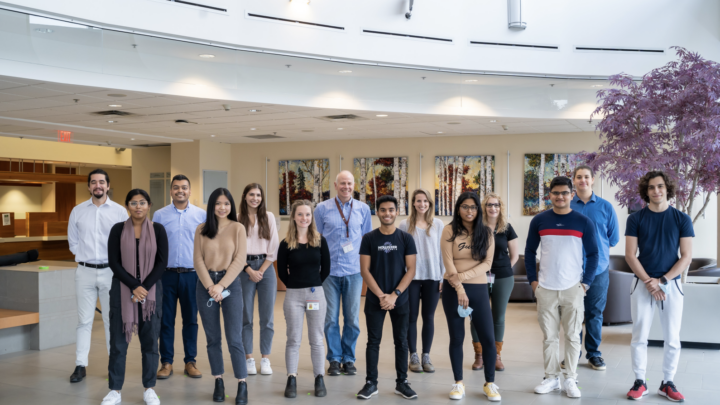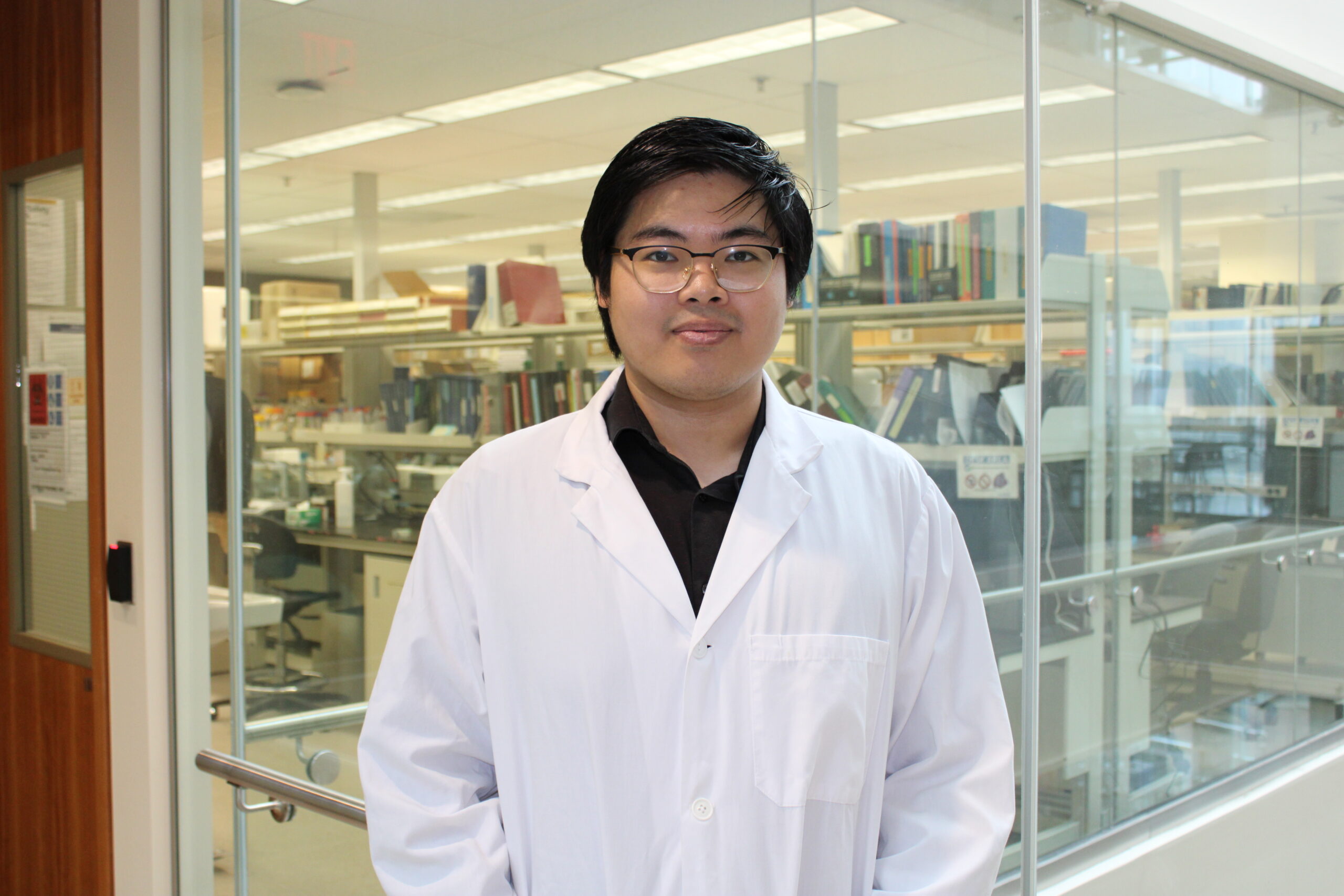What We Do
Research in the Werstuck Lab is focused upon understanding the molecular and cellular mechanisms that underlie the development and progression of atherosclerosis – a disease of the artery wall that is the cause of most heart attacks and strokes. The lab is especially interested in determining why three out of four people with diabetes mellitus will die of a heart attack or stroke.
The Werstuck Lab examines animal models and human samples using a broad array of experimental systems involving biochemical assays, tissue culture and vascular pathology. A combination of genomic, proteomic and metabolomic techniques are used to delineate novel pathways that link diabetes and hyperglycemia to atherosclerotic progression. Knowledge of these pathways will facilitate the identification of new, more efficacious targets for drug development.
Current research in the lab includes the following projects:
- Glycogen synthase kinase (GSK)-3? and ? are signaling proteins that are activated by hyperglycemia. GSK3? specifically appears to be required for the accelerated the growth of the atherosclerotic plaque. The lab has shown that inhibition or genetic deletion of GSK3? is sufficient to slow the progression of disease in mice and can promote the regression of existing atherosclerotic lesions.
- It is well established that sex plays a role in the pathogenesis of cardiometabolic diseases. We are actively investigating how specific sex hormones affect the development and progression of atherosclerosis and diabetes using in vitro and mouse model systems.
- The vasa vasorum is a network of small blood vessels that supply the walls of large arteries. The lab has shown that conditions of hyperglycemia disrupt these small blood vessels. Ongoing studies are investigating the effect of vasa vasorum disruption on the development of atherosclerosis in mice and humans.
Research in the Werstuck Lab is supported by funding from the Canadian Institutes of Health Research (CIHR), the Canadian Diabetes Association and the Heart and Stroke Foundation of Canada (HSFC).
Geoff Werstuck holds a Mid-Career Investigator Award from HSFC and holds the International Society on Thrombosis and Haemostasis (ISTH)-McMaster Chair in Thrombosis and Haemostasis Research.
Who We Are
Information Box Group
Geoff Werstuck
PhD
Professor, Departments of Medicine and Biochemistry and Biomedical Sciences

Geoff Werstuck
PhD
Professor, Departments of Medicine and Biochemistry and Biomedical Sciences
Geoff Werstuck
PhD
Professor, Departments of Medicine and Biochemistry and Biomedical Sciences
Geoff Werstuck
PhD
Professor, Departments of Medicine and Biochemistry and Biomedical Sciences
Select Publications
2023
- Mastrogiacomo L, Ballagh RA, Venegas-Pino, DE, Shi Y, Werstuck GH (2023) The effects of hyperglycemia on early endothelial activation and th4 initiation of atherosclerosis. Am J Pathol Jan;193(1):121-133.
- showcased on The American Journal of Pathology’s Facebook page
- Gu Y, Lin X, Dong Y, Wood G, Seidah N, Werstuck GH, Major P, Bonert M, Kapoor A, Tang D (2023) PCSK9 facilitates melanoma pathogenesis via a network regulating tumor immunity. J Exp Clin Cancer Res Jan 2;42(1):2.
- Podinic T, Werstuck GH, Raha S (2023) The Implications of Cannabinoid-Induced Metabolic Dysregulation for Cellular Differentiation and Growth. International Journal of Molecular Sciences 24(13), 11003.
2022
- Lamri A, De Paoli M, de Souza R, Werstuck GH, Anand S, Pigeyre M (2022) Sex-specific genetic determinants of type 2 diabetes and glucose-related traits. Frontiers in Cardiovascular Medicine Nov 24;9:964743.
- Mastrogiacomo L, Werstuck GH (2022) Investigating the role of GSK3?? in hyperglycemia-induced endothelial activation. Int J Mol Sci Nov 26;23(23):14780.
- De Paoli M, Wood DW, Bohn MK, Pandey AK, Borowitz DK, Venegas-Pino DE, Shi Y, Werstuck GH (2022) Investigating the protective effects of estrogen on beta cell health and the progression of hyperglycemia-induced atherosclerosis. Am J Physiol Endocrinol Metab Sep 1;323(3):E254-E266.
- Patel S, Mastrogiacomo L, Fulmer M, Shi Y, Werstuck GH (2022) Deletion of Macrophage-Specific Glycogen Synthase Kinase (GSK)-3alpha Promotes Atherosclerotic Regression in Ldlr-/- Mice. Int J Mol Sci 23, 9293.
- Fang S, Patel Z, De Paoli M, Werstuck GW (2022) Sex Differences in the Development of Hyperglycemia in Rodent Models of Diabetes and Obesity. J Diabetes Res Ther 7(1): dx.doi.org/10.16966/2380-5544.160.
2021
- Patel S and Werstuck GH (2021) Characterizing the Role of Glycogen Synthase Kinase (GSK)-3?/? in Macrophage Polarization and the Regulation of Pro-Atherogenic Pathways. Frontiers in Immunology 12:676752.
- Day EA, Leblond ND, Ford RJ, Smith BK, Houde VP, Lhoták S, Trigatti BL, Werstuck GH, Austin RC, Fullerton MD, Steinberg GR (2021) Salsalate reduces atherosclerosis through AMPK?1 in mice. Molecular Metabolism 53:101321.
- Juneja GK, Castelo M, Yeh CH, Cerroni SE, Hansen BE, Chessum JE, Abraham J, Cani E, Dwivedi DJ, Fraser DD, Slessarev M, Martin C, McGilvray S, Gross PL, Liaw PC, Weitz JI, Kim PY; COVID-BEACONS investigators. (2021) Biomarkers of coagulation, endothelial function, and fibrinolysis in critically ill patients with COVID-19: A single-center prospective longitudinal study. J Thromb Haemost Jun;19(6):1546-1557.
- De Paoli M, Zakharia A, Werstuck GH (2021) The role of estrogen in insulin resistance: a review of clinical and pre-clinical data. Am J Pathol 191, 1490-1498.
- Kaur H and Werstuck GH (2021) The Effect of Testosterone on Cardiovascular Disease and Cardiovascular Risk Factors in Men: A Review of Clinical and Pre-Clinical Data. Can J Cardiol Open 3, 1238-1248.
- Mastrogiacomo L and Werstuck GH (2021) The Potential of Cannabidiol in the Treatment of Cardiovascular Disease. Int J Cardiovasc Dis Diag 6, 13-16.
- Patel S. and Werstuck GH (2021) Macrophage function and the role of GSK3. Int J Mol Sci 22, 2206.
- Duivenvoorden WCM, Naeim M, Hopmans SN, Yousef S, Werstuck GH, Dason S, Pinthus JH (2021) Protective effect of pharmacological castration on metabolic perturbations and cardiovascular disease in the hyperglycemic male ApoE-/-:Ins2+/Akita mouse model. Prostate Cancer and Prostatic Diseases 24(2):389-397.






